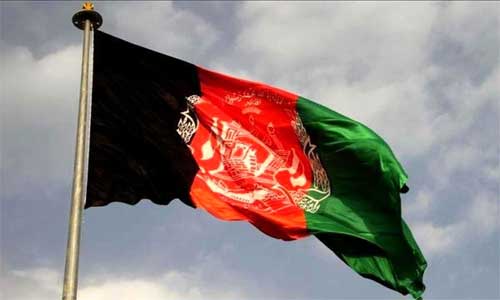Why isn’t there peace in Afghanistan? What about the ‘efforts’ put by two of the strongest countries in the world – Soviet Union and United States, in last three decades? And, not to forget the efforts that were exerted by the Great Britain in the 19th century, when Afghanistan was emerging as a state. These were the countries with the largest economies, the best militaries and with the claimed intentions of ‘making Afghanistan better’. Why couldn’t their intentions turn into practical measures? And, if they did, why those measures couldn’t bring stability and prosperity in Afghanistan? Why the country is suffering under a weak political system, with meagre economic infra-structure and no security? Definitely, there were issues with the intentions or the measures, or, most probably, the understanding of the scenario in Afghanistan that failed these powers in Afghanistan (if failure wasn’t intended).
Leaving the discussion of intentions and measures aside, let’s focus our attention on the failure to understand the scenario in Afghanistan. Historical facts show that all the three powers failed to comprehend the Afghan society properly; therefore, they were not able to design and implement proper state-building and nation-building strategies that they took the responsibilities for. For example, the British Empire in 19th century, out of oblivion, or in order to support its own interests of creating a buffer state between itself and the Russian Empire, supported the state-formation in Afghanistan. And, in doing so, it was only able to back a highly centralized government in Afghanistan that could exert control on the area, without consideration to the multi-ethnic and diverse Afghan society. Though the approach could support the British and Russian interests, it could not meet the demands of the Afghan society, and created a political system that was not the representative of all the people of the country. Later, the state-building traditions kept on following the same framework without understanding or discussing the alternatives.
The Soviet episode in Afghanistan (1979 to 1989) also showed grave misunderstanding of the scenario. Striving to implement a socialist revolution or regime from top to bottom could not bear any fruitful result. The Afghan society at the time was highly tribal and religious, and the socialist system was totally alien to it; therefore, it could not embrace the system and kept on generating opposition against it. The situation was further worsened when the United States backed Afghan Jihad against the Soviet Union to heat up the Cold War. The saga resulted in war and misfortune for the people of Afghanistan.
However, after the intervention of the United States in Afghanistan in post 9/11 scenario, there were expectations by Afghan people that better state-building strategies would follow, and Afghanistan would be able to form at least the basic infra-structure of a modern state. Nonetheless, after 19 long years, there have not been considerable achievements in this regard. The political system in the country lacks stability, legitimacy and the capacity to provide basic services to the people. Moreover, the system is being threatened by the insecurity and competition backed by the Taliban and many terrorist groups in the country. It is not that the United States has not given sacrifices in blood and money in the country, but that the outcomes have not been what they had claimed to achieve. As a matter of fact, all the slogans of state-building, nation-building and peace-building by the US after the Bonn Conference on Afghanistan in 2001 only achieved a divided and weak government, with a political system that could hardly face the challenges within the society.
The United States’ political intervention in Afghanistan did not meet the challenges of the society, and the major reason was it did not understand those challenges, or did not want to understand. In December last year, The Washington Post released The Afghanistan Papers, which claimed that the US officials did not understand what they were doing in Afghanistan. The report revealed official papers which quoted Douglas Lute, a three-star general as saying, “We were devoid of a fundamental understanding of Afghanistan — we didn’t know what we were doing … What are we trying to do here? We didn’t have the foggiest notion of what we were undertaking.” This clearly shows that the US policy initiatives were being implemented in Afghanistan without a clear intention or motive. And, the most probable reason could be that the US only wanted to make its presence sure in the country, without pursuing the true state-building or nation-building strategies.
Definitely, the consequences are not satisfactory for both the US and Afghanistan. The US has spent about $978 billion in Afghanistan, and more that 2,300 US troops have died since 2001; however, what they have achieved so far is a stalled peace process and an urgency to withdraw from the country without a comprehensive strategy. The above-mentioned report quotes Jeffrey Eggers, a retired Navy SEAL and White House staffer for presidents Bush and Obama, “What did we get for this $1 trillion effort? Was it worth $1 trillion? After the killing of Osama bin Laden, I said that Osama was probably laughing in his watery grave considering how much we have spent on Afghanistan.” And what are the achievements for Afghanistan can be best gauged by the miseries they are going through.
Home » Opinion » Misunderstanding Afghanistan
Misunderstanding Afghanistan
| Sajjad Aasim

